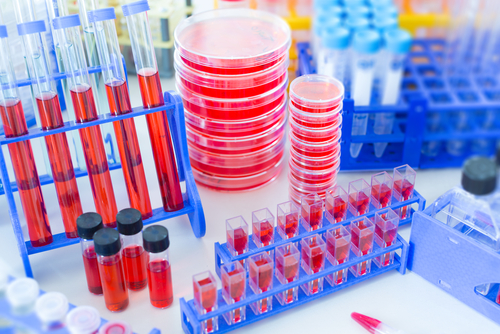DNA testing is today an integral feature of any effort to determine identity, but its origins can be traced back to 1866 and a Czech monk named Gregor Mendel whose experiments on pea plants set the wheels in motion for a whole new realm of study in the field of heredity and genetics. Different blood types were identified in the 1920s, but it wasn?t until some sixty years later that the first DNA tests were able to map differences in our genetic make-up which are unique to every individual. It was a process applying these principles, developed in conjunction with the Forensic Science Service in the UK, which led to the solving of the rape and murder of two teenagers in what was to prove a groundbreaking case. These operations employed methods then considered to be at the cutting edge of science but which in fact were not much different to how home DNA kits work for millions of ordinary people today. The Emergence of DNA Testing as a Universal Tool This technology was then only at the disposal of advanced scientific research establishments, the military (see this article from the National Library of Medicine) and law enforcement agencies. It wasn?t until the later identification of Next Generation Sequencing, in the 2000s, that its potential as a means of prompting research by the wider public into their own unique genetic heritage became apparent. In 2009, Time magazine noted the transformation of DNA profiling from a plaything of the elite to a tool of mass discovery. As DNA testing became more mainstream its uses naturally multiplied. As well as using it for solving crimes or in advanced medical procedures it soon became clear that it could provide a range of other indicators, some of them of less import but nonetheless useful to ordinary people wishing to know more about themselves. Its accessibility and simplicity in testing without the need for expensive machinery made it ideal for mass-consumption. The Impact of Home DNA Testing on Industry At less than S100 apiece, genetic testing kits supported by huge databases enable people from around the world to pinpoint their own precise ethnic make-up and to identify other people to whom they may be related. Thus low-cost genetic testing has revolutionized the way in which industry can access information once available only to major scientific corporations and governments. This has led to its use in a number of fields which not very long ago wouldn?t have been possible. Paternity Testing The relative ease with which a thing such as a paternity test can be accurately undertaken has generated a much greater interest in seeking out such information. Whereas once a person may not have gone to the expense of confirming their parentage unless there was a real issue involved which rendered it unavoidable, now that it is much easier and cheaper to do there is more likelihood that some will wish to undergo such a test ?just to be sure?. This has created an opportunity for small business to offer paternity testing services without incurring the prohibitive overheads and initial investment costs which once would have been involved. In the same way public interest in investigating any potential hereditary medical conditions has also increased in line with the availability of such information. Private Surveillance DNA testing has been used by law enforcement agencies in criminal investigations since the 1980s, but it was another twenty years before the technology became accessible to small private investigation firms and now features as an integral part of their armory. Forensic investigation is now within the remit of private detectives investigating matters of identity, location and placing individuals at scenes, as well as enabling the exploration of potential criminal issues which may not have been pursued by the authorities. Assisting Law Enforcement Buzzfeed reported recently that Family Tree DNA, one of the largest companies in home genetic testing, has allowed the FBI access to its vast database in order to help it solve cases of violent crime. This has proved both helpful and contentious, as customers of the DNA firm protest that they did not consent to their information being passed on in this way. Conclusion Home DNA tests are making major changes in our everyday lives and how we view our health. Consult a doctor or professional if you have any questions, and consider your options before embarking on using one of these tests
What Are Home DNA Tests And How Do They Change Our Life?

Share This Article
